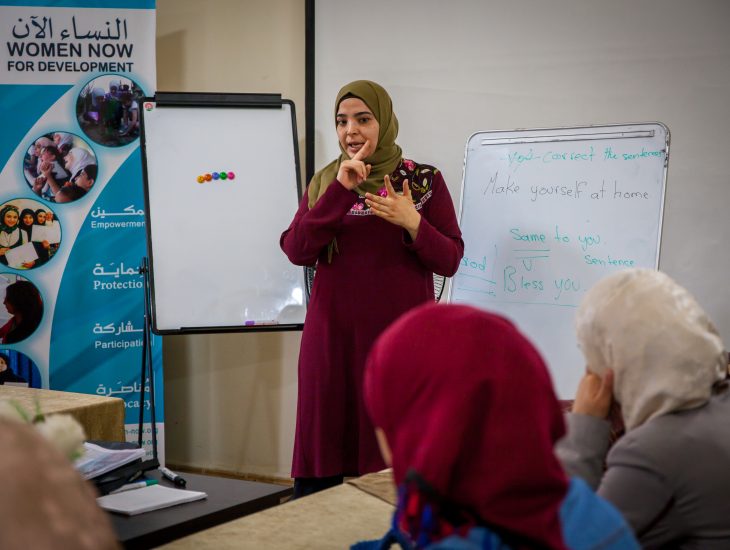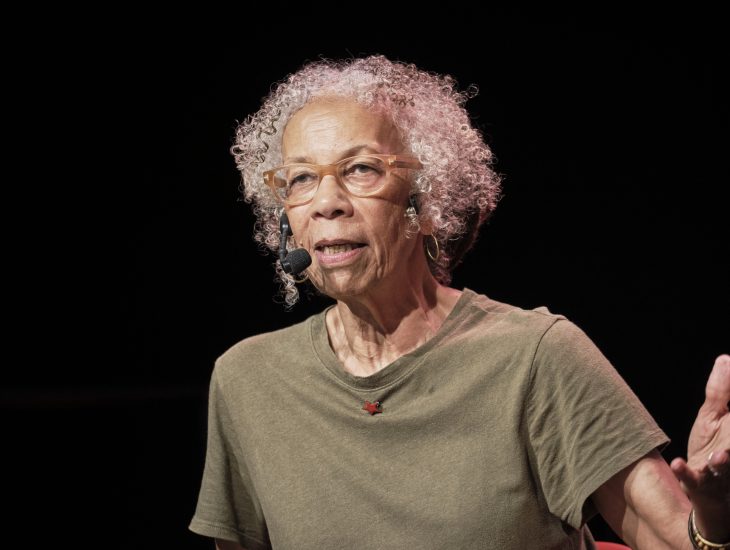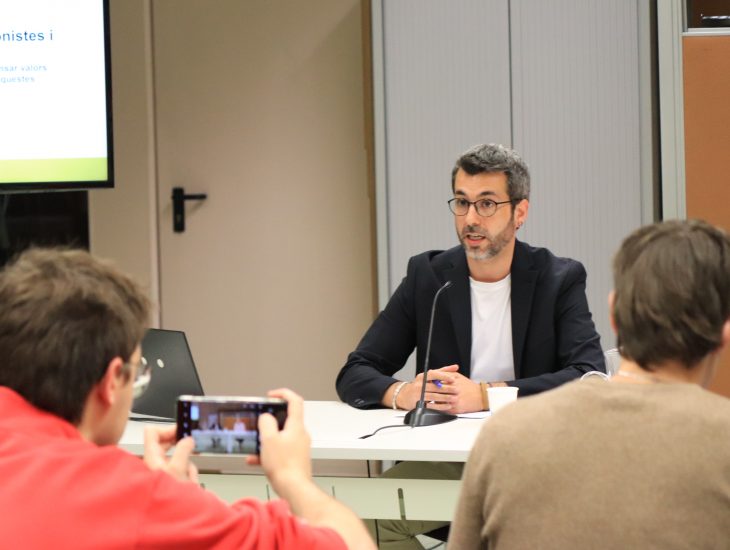On February 29th the International Catalan Institute for Peace (ICIP) awarded the First ICIP Peace in Progress Award to the group of conscientious objectors and insubmisos who opposed compulsory military service, in an emotional ceremony at the Catalan Parliament. Various representatives, relatives and friends of the group, along with representatives of the peace movement and political parties were present at the event.
The award recognizes the work of conscientious objectors and insubmisos “in representing a long and diverse struggle against compulsory military service, which contributed to the deepening of democracy and to spreading the values of a culture of peace.” By rejecting the use of arms, the group also spread the values of “conscientious objection, civil disobedience and the nonviolent resolution of conflicts.”
Appeal to continue struggling
The ICIP Peace in Progress Award was presented to Pepe Beunza, first conscientious objector for ideological reasons in Spain, in 1971, who was accompanied by four other representatives of the movement: Jordi Agulló, who was the second conscientious objector; Jaume Llansó, insubmís; Ramon Panyella, president of Moviment per la Pau (Movement for Peace) – formerly the Association of Conscientious Objectors; and Martí Olivella, member of the first group of conscientious objectors of Can Serra.
Pepe Beunza thanked ICIP for its recognition and evoked, in his speech, “the 30 years of a tough nonviolent campaign for conscientious objection”, which involved one million conscientious objectors and 30,000 insubmisos. He recalled that “there are still countries, such as Greece and Turkey, where conscientious objectors are persecuted and imprisoned”, and he called for a “culture of peace, based on cooperation, generosity and compassion”, as opposed to a “predatory and capitalist culture of death”. And he called upon the audience to continue struggling. “We have gone from a Francoist dictatorship to an international financial dictatorship which we must also oppose […]. We must continue because social gains do not last forever. We can see how we are losing improvements in health care, education, social services, etc. of what was the beginning of a society of well-being; improvements that were obtained after a long struggle and many sacrifices.” Beunza also stated that “it is necessary to promote peace organizations to build a more just and peaceful society and to create nonviolent peace forces”.
Recognition for a just cause
José Luis Gordillo, professor of Philosophy of Law at the University of Barcelona, also participated in the event. He defined Beunza as the “patriarch” of the movement of conscientious objectors and insubmisos. In his speech, Gordillo pointed out “the extremely important contributions made by the group of conscientious objectors and insubmisos to the culture of peace and to the culture of democracy in our country”. Among these contributions, he highlighted the recognition of the right to object to compulsory military service, the dissemination of a culture of peace in Spanish society, the normalization of public criticism of the armed forces as an institution, and the abolition of compulsory military service by strictly nonviolent means, through civil disobedience.
In the closing ceremony, the president of the Parliament, Núria de Gispert, congratulated the group of conscientious objectors and insubmisos for their years of struggle, and highlighted “the courage, generosity and coherence – of Pepe Beunza—in support of a just cause”, recalling that, as a result of his act, he was court-martialled twice, spent 15 months in prison, and 18 months more in a disciplinary battalion in the Western Sahara.
The president of the Parliament also underlined the contribution of the ICIP Award in the dissemination of a culture of peace, the power of words and dialogue to resolve conflicts. She recalled that a special edition of this award was presented to the Parliament of Catalonia in October 2011 for “representing and symbolizing, as the maximum exponent of sovereignty emanating from the people of Catalonia, the continuity and legacy of the institutions, in which pacts, dialogue and the peaceful solution of controversies have strong roots”.
ICIP commitment
The ICIP Peace in Progress Award is conferred annually and was created to publicly recognize individuals, groups or entities that have worked for or contributed to the promotion of peace in a significant and extensive manner. The award consists of an honorific distinction, public recognition and a sculpture created by the Nobel Peace Prize winner, activist and artist, Adolfo Pérez Esquivel, called Porta del Sol.
Director Tica Font stated that, along with the First ICIP Peace in Progress Award, ICIP is committed to “preserving, as much as possible, the memory and historic legacy of the various individuals and organizations that were part of the movement of conscientious objectors and insubmisos”. In order to do so, ICIP will promote the gathering of oral testimonies, the publication of works about the people and organizations, the compilation and public dissemination of documents and publications of the movement, and the dissemination, through the ICIP website, of works and documents of the time, related to conscientious objection, nonviolence and civil disobedience.
01.01.2012



